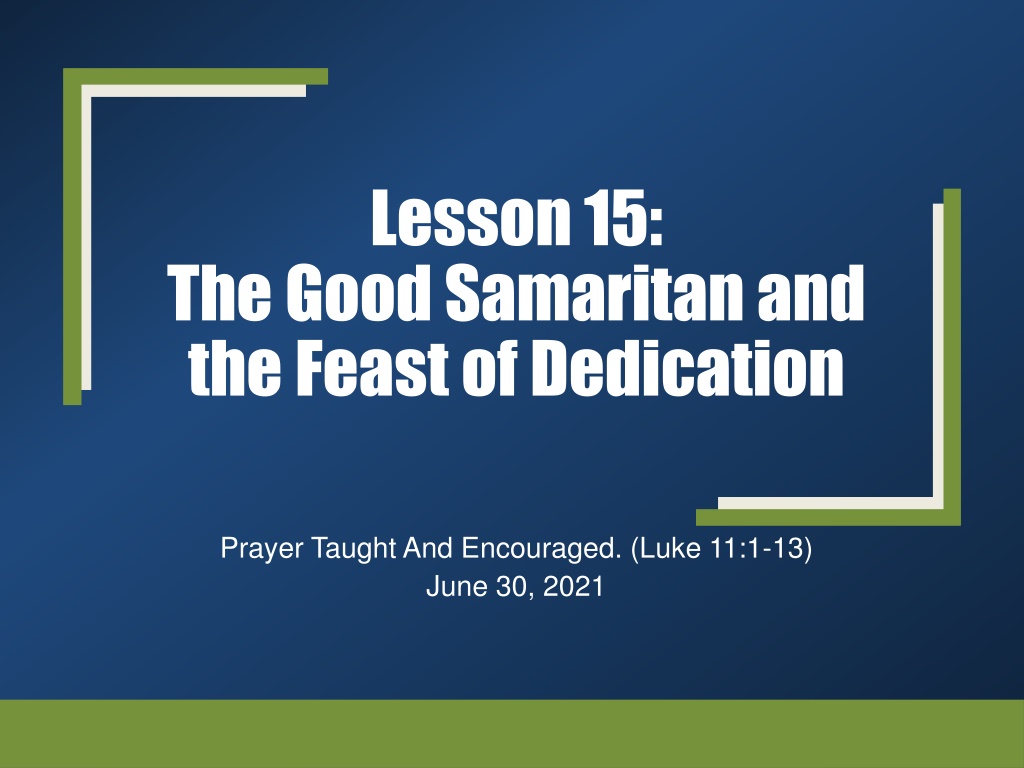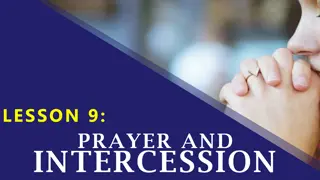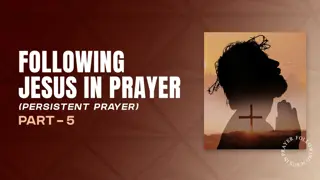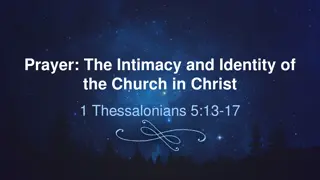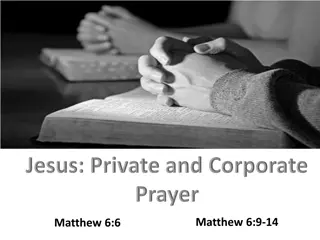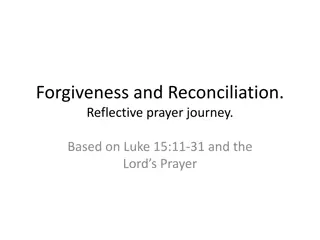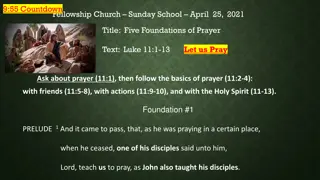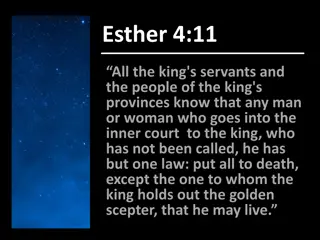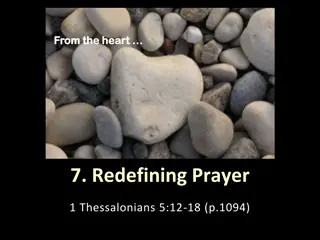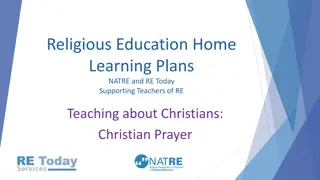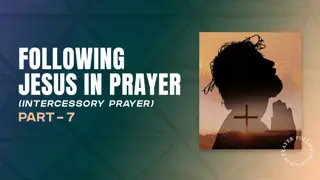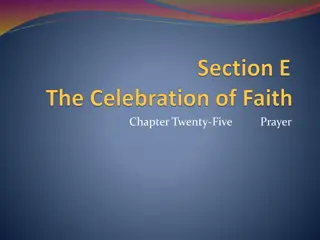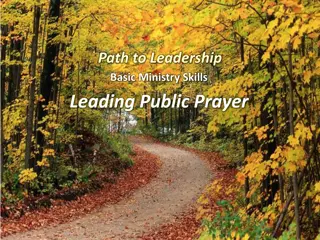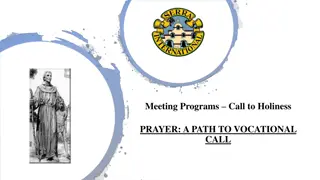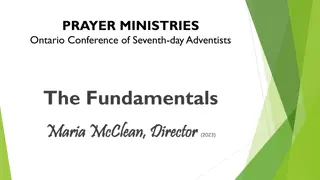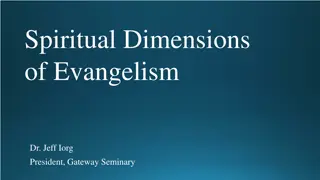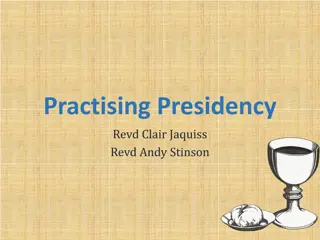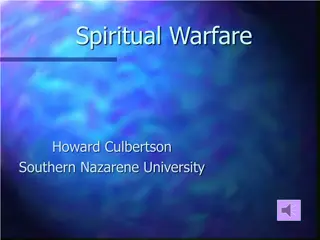Lessons on Prayer and Intercession from Luke 11:1-13
Exploring the significance of prayer for others as emphasized in Luke 11:1-13, this content discusses various aspects of intercessory prayer, including praying for enemies, rulers, salvation of others, brethren, and spiritual growth. It highlights the importance of genuine, humble, and meaningful prayer while also addressing common pitfalls to avoid in prayer life.
Download Presentation

Please find below an Image/Link to download the presentation.
The content on the website is provided AS IS for your information and personal use only. It may not be sold, licensed, or shared on other websites without obtaining consent from the author. Download presentation by click this link. If you encounter any issues during the download, it is possible that the publisher has removed the file from their server.
E N D
Presentation Transcript
Lesson 15: The Good Samaritan and the Feast of Dedication Prayer Taught And Encouraged. (Luke 11:1-13) June 30, 2021
For What Should We Pray? For Others. Luke 22:31-32; 23:34 1. Enemies. Matthew 5:43-44; Luke 23:24 2. Rulers. 1 Timothy 2:1; cf. Romans 13:1-7; 1 Peter 2:13-17 3. Salvation of others. Luke 23:34; Romans 10:1-4. 4. Brethren. Ephesians 3:14-19; James 5:13-16 2
For What Should We Pray? Be thankful for our brethren. Romans 1:8; 1 Corinthians 1:4; Ephesians 1:15f; Philippians 1:3; Colossians 1:3ff; 1 Thessalonians 1:2; 2:13; 2 Timothy 1:3; Philemon 4 3
For What Should We Pray? Pray for the Spiritual growth and progress of the gospel. Paul frequently prayed for others and made request for the prayers of others. Philippians 1:9; Colossians 1:9; 2 Thessalonians 1:11; 1 Thessalonians 5:23; Colossians 4:12. That he might speak with boldness. Ephesians 6:18-19 Door of opportunity might be opened. Colossians 4:3 That the word of the Lord may have free course 2 Thessalonians 3:1 4
There Are Some Nots To Prayer (1) Not to be seen and heard of men. The hypocrites liked to pray standing in the synagogues and on street corners to be seen of men. Jesus said, Verily I say unto you, they have their reward (Matthew 6:5). (2) Not for fleshly lust. James said, Ye ask, and receive not, because ye ask amiss, that ye may consume it upon your lusts (James 4:3). (3) Not much speaking (multitude of words). But when ye pray, use not vain repetitions, as the heathen do: for they think that they shall be heard for their much speaking (Matthew 6:7). Some say, I cannot pray as well as some others. This means, I do not have the proper and dignified words. Remember, one is not heard for his much speaking. This suggests that we need to be taught how to pray.
There Are Some Nots To Prayer (4) Not self-exaltation. And he spake this parable unto certain which trusted in themselves that they were righteous, and despised others (Luke 18:9). This self-righteous person flatteringly induces himself to set aside God s commandments for his own. He then looks contemptuously upon anyone who refuses to accept his self-willed religion. Is there any greater sin than the sin of presumptuously forming our own will in matters of religion and binding that human will upon others? (5) Not just a set form nor fixed expression. (Matthew 6:9- 15; Luke 11:2-4). Jesus did not give a set form but rather taught His disciples the manner in which to pray. I repeat, it is a modelof prayer. The Lord s prayer is recorded in John 17, etc. Other occasions of Jesus praying are given, but this prayer is offered for all. It should also impress upon us the need of prayer. Lord, teach us how to pray.
